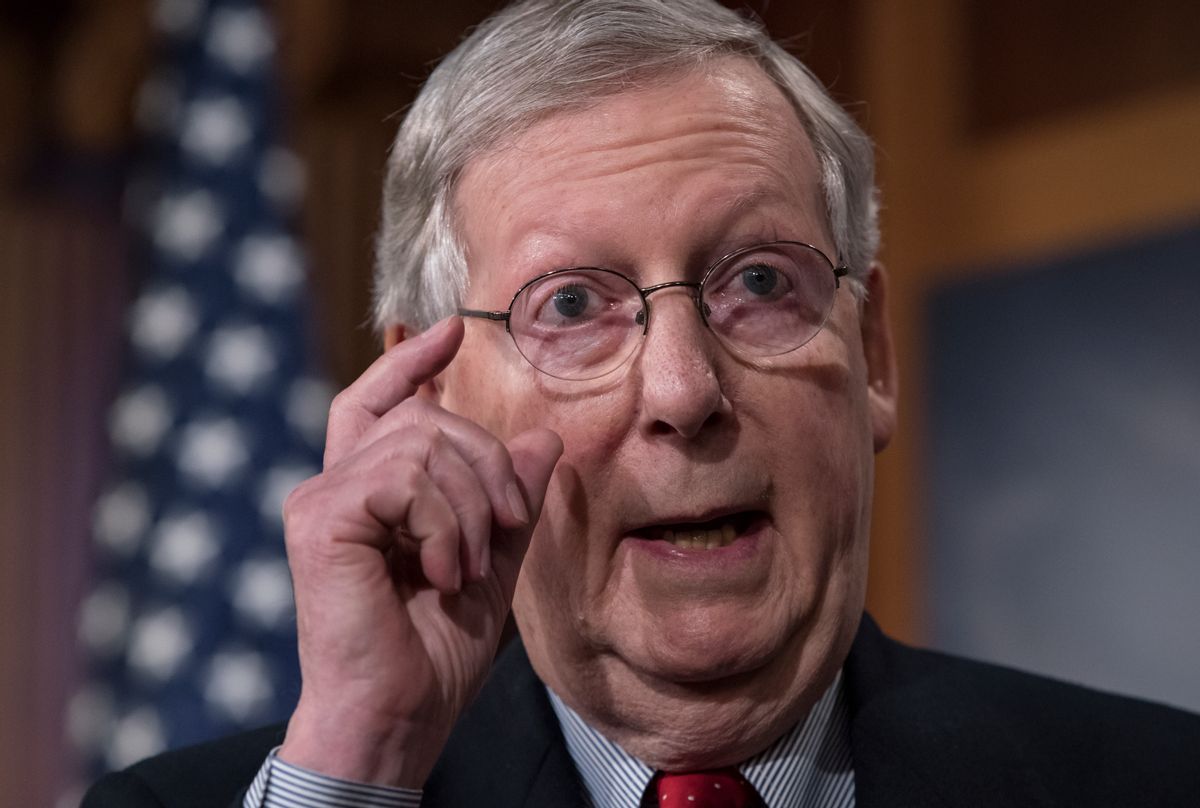A new report from the Congressional Budget Office suggests that the health insurance bill being considered in the Senate will make even larger reductions to Medicaid funding outside of the 10-year forecasting period that the agency normally considers. Made at the request of Senate Democrats, the supplemental CBO analysis shows that the Republican plan will decrease total Medicaid funding by 26 percent by 2026 and then by 35 percent by 2036.
The reduction in funding is due to the fact that the measure increases Medicaid's budget at the pace of inflation, a rate that has historically increased at a slower pace than medical costs.

The Affordable Care Act expanded eligibility for Medicaid but the federal government gradually reduces the matching funds provided to states for new insurees to 90 percent by 2020.
According to the CBO, for states to meet their obligations to Medicaid recipients under the GOP plan, they will have to engage in a number of cost-cutting measures. This will likely result in negative health outcomes since Medicaid already reimburses many medical providers at lower than market rates. Limiting the number of people allowed to sign up for the service is one of the possible resolutions some states may pursue.
"Under this legislation, after the next decade, states would continue to need to arrive at more efficient methods for delivering services (to the extent feasible) and to decide whether to commit more of their own resources, cut payments to health care providers and health plans, eliminate optional services, restrict eligibility for enrollment, or adopt some combination of those approaches," the CBO report said.
Turning Medicaid into a block-grant program or a per-recipient funded program has long been a goal of Speaker of the House Paul Ryan. The amount of money that the Senate GOP's bill reduces Medicaid spending, $722 billion according to the CBO, is very similar to the plan that Ryan unveiled in 2011 which proposed cutting spending increases to the program by $735 billion. Republicans have long argued that federal spending on Medicaid and Medicare is growing too rapidly to be sustainable. They have also, for the most part, remained opposed to tax increases to offset such spending.
A spokeswoman for McConnell told the Washington Post that the “CBO says the 20-year predictions are almost impossible.”
Several Democratic leaders still used the report to criticize the GOP proposal this week
“When it comes to Medicaid cuts, the Senate bill is even meaner than it looks — and the more time goes by, the meaner it gets," Sen. Chris Van Hollen, D-Md., said.

Shares